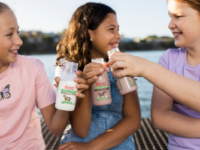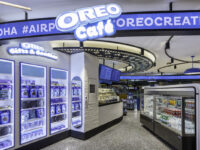 Australian convenience stores may embrace a broader product range in alchohol and pharmaceutical categories in the coming years to increasingly provide destination appeal to time-poor consumers.
Australian convenience stores may embrace a broader product range in alchohol and pharmaceutical categories in the coming years to increasingly provide destination appeal to time-poor consumers.
New research conducted by Monash Business School for the Australian Association of Convenience Stores (AACS) has found that the Australian convenience store landscape could be drastically different by 2030.
AACS chief executive Jeff Rogut said convenience stores will need to improve in-store experience and take advantage of technological change to capitalise on the growing millennial market and that a move into alcohol would add $600-700 million in annual revenue to the industry.
“The research highlighted the opportunity and importance for our industry to establish new strategic partnerships, be it with fresh food producers, niche diet providers, alternate fuel companies, electric or driverless car companies, delivery service providers, or loyalty programs,” Rogut said.
Leading convenience store retailers were interviewed for the study, and while efforts to secure approval for alcohol retailing is nothing new, several convenience chains are already seeking approval to begin selling alcohol after movement on the matter in Canberra earlier this year.
Rogut told Inside FMCG that initial discussions with suppliers had already taken place and had been encouraging, with the category slated to become the 3-4th most popular vertical if convenience stores are able to gain approval.
Convenience stores around the world are already well embedded into the achoholic drinks market, particularly in Japan.
“Convenience stores will also need to focus on attracting new customer segments to ensure they remain a pillar in local communities. Our customer base today is largely male-dominated, so an opportunity exists to adapt our offer to encourage more women seeking fresh, healthy food and safe environments to our stores,” Rogut postured.
“As you enter the store of the future, you might pass the local delivery driver on their way to a customer’s house. You might find a large selection of private label products ecologically sourced and sustainably packaged to choose from. You might see people interacting with augmented reality entertainment options as you make your choice. The possibilities are endless.
“But while there is a vast array of drivers which will be necessarily impact our industry, re-shaping it in expected and unexpected ways, the one constant that will always hold us in good stead is an unwavering focus on the customer, and providing the most complete and convenient service possible,” he continued.















